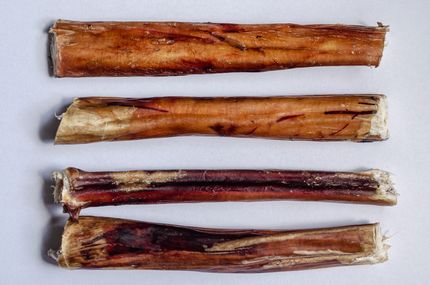Cushing's syndrome, also known as hyperadrenocorticism, is a disorder that occurs in dogs and is characterized by excessive production of cortisol, a stress hormone. This disorder can have serious effects on your dog's health and well-being.
What is Cushing's syndrome?
In Cushing's syndrome, too much cortisol is produced in the adrenal glands. This hormone is responsible for regulating many functions in the body, including metabolism and the immune system. However, overproduction can lead to various health problems.
Causes of Cushing's syndrome
Cushing's syndrome is usually caused by a tumor in the pituitary gland or adrenal glands. The pituitary form is the most common and occurs when a benign tumor in the pituitary gland causes too much cortisol to be produced. The adrenal form occurs when a tumor directly in the adrenal glands leads to excessive cortisol production.

Symptoms of Cushing's syndrome
The symptoms of Cushing's syndrome include
- Increased thirst and frequent urination
- Increased appetite
- Hair loss
- Abdominal swelling
- lethargy
- Muscle weakness
Diagnosis of Cushing's syndrome
The diagnosis of Cushing's syndrome can be complex. It usually involves a combination of blood tests, urinalysis and imaging techniques such as ultrasound or MRI. Blood tests can reveal elevated cortisol levels, while imaging can help determine the size and location of tumors.
Should I euthanize my dog with Cushing's disease?
The decision to euthanize a dog with Cushing's disease is a very personal and often difficult one, depending on a number of factors. Here are some aspects you should consider when making this decision:
1. the dog's quality of life
- Pain and discomfort: Observe whether your dog is in constant pain or discomfort that cannot be adequately treated or relieved.
- Ability to perform daily activities: Does your dog have difficulty getting up, walking, eating or using the toilet?
- Interest and enjoyment: Does your dog still show interest in activities that he used to enjoy, such as going for walks, playing or interacting with family?
2. medical prognosis
- Progression of the disease: How quickly is the disease progressing? Are there treatment options that could improve quality of life?
- Side effects of treatment: How are treatments affecting your dog's general condition? Are the side effects of treatment worse than the symptoms of Cushing's disease?
3. advice from the vet
- Professional assessment: Your veterinarian can help you assess your dog's quality of life and understand the medical prognosis.
- Treatment options: Discuss all available treatment options, including palliative care, to alleviate symptoms.
4. emotional and financial considerations
- Emotional burden: Consider your emotional capacity, both in terms of care and coping with the progressive course of the disease.
- Financial considerations: Sometimes financial considerations also play a role, especially if treatment costs are high.
5. quality instead of quantity
- Focus on quality of life: It is often more important to focus on the quality of the remaining life rather than on extending the lifespan at any cost.

Treatment of Cushing's syndrome
Treatment depends on the cause of the syndrome. In the pituitary form, medication can be used to reduce cortisol production. In the adrenal form, surgery may be required to remove the tumor. In both cases, continuous monitoring and adjustment of treatment is necessary.
Drug treatment
Drugs that are often used to treat Cushing's syndrome are Trilostane and Mitotane. These drugs help to regulate cortisol production. The dosage must be adjusted individually and monitored regularly.
Surgical treatment
In cases where a tumor is the cause, surgical removal may be the best option. This is particularly the case with tumors in the adrenal glands. However, surgery is associated with risks and requires careful aftercare.

Aftercare
Follow-up care for dogs with Cushing's syndrome includes regular veterinary visits, blood tests and medication adjustments. A good diet and regular exercise are also important to control weight and promote overall well-being.
Cushing's syndrome is a serious condition that requires careful diagnosis and treatment. However, with proper care and treatment, many dogs can live a long and healthy life. It is important to consult a veterinarian early if Cushing's syndrome is suspected and to develop an individualized treatment plan.





















